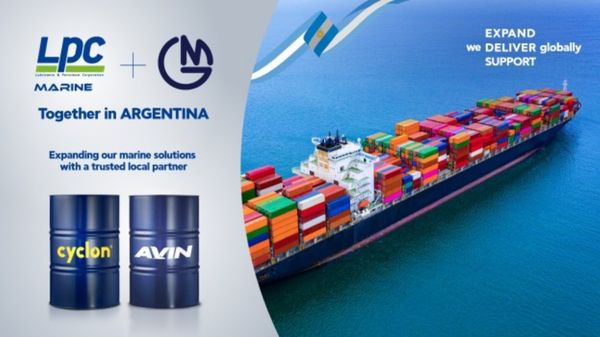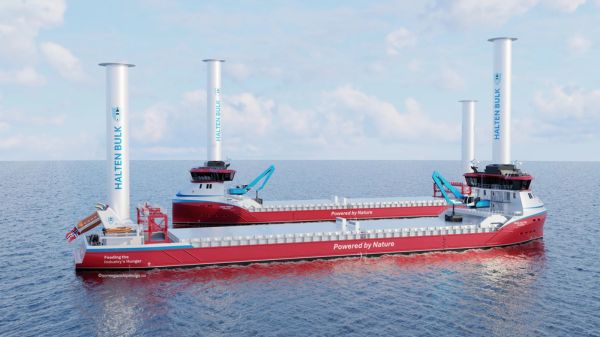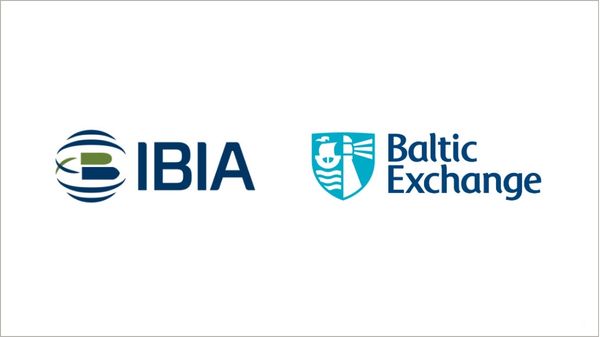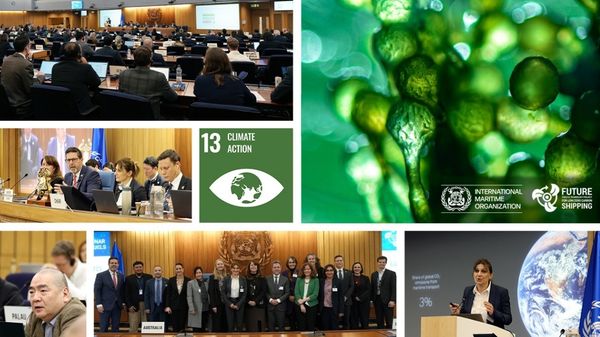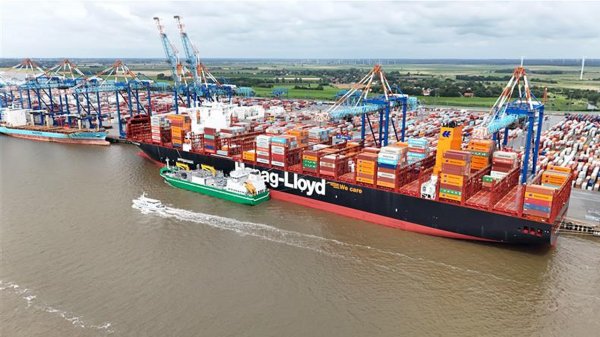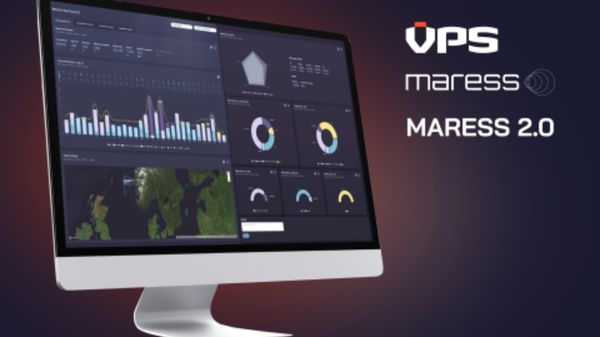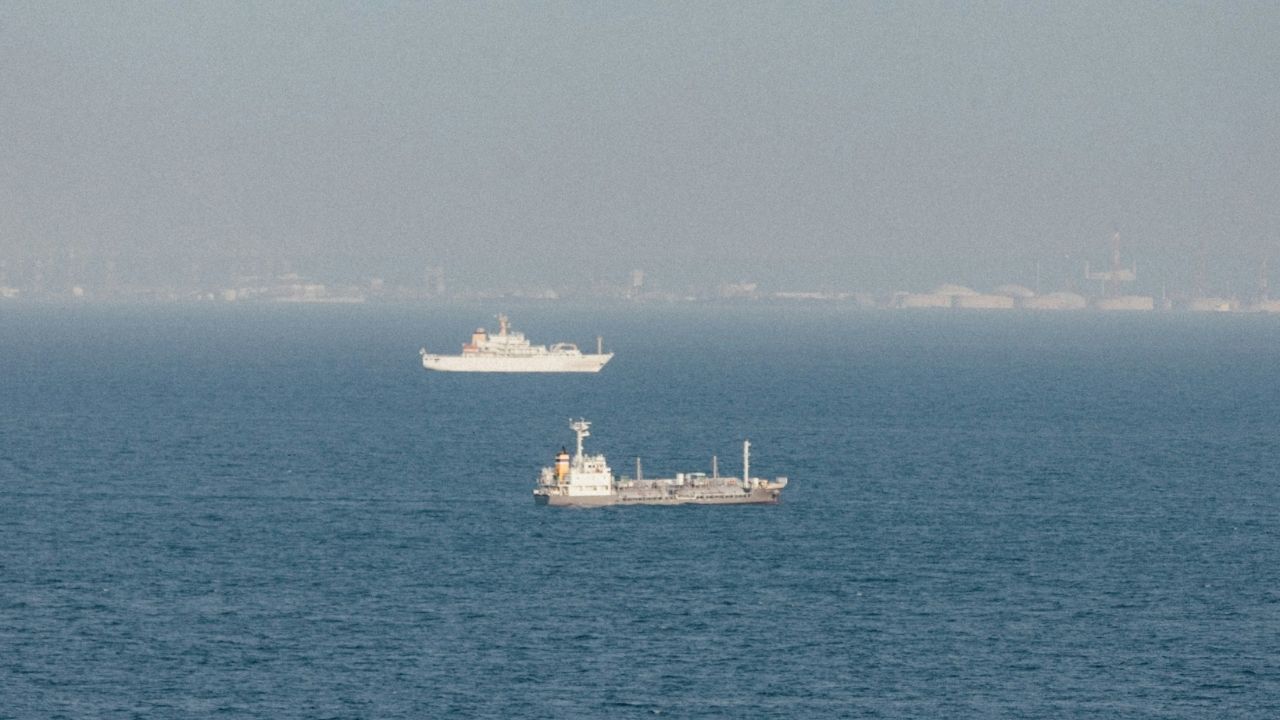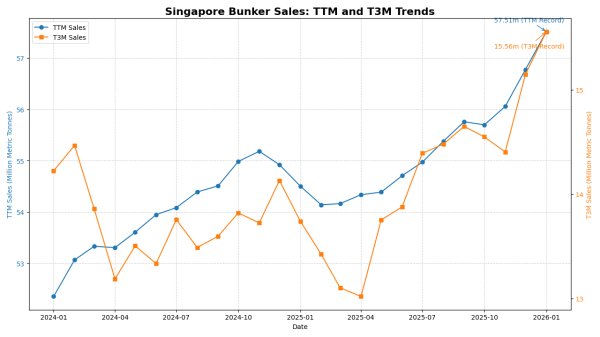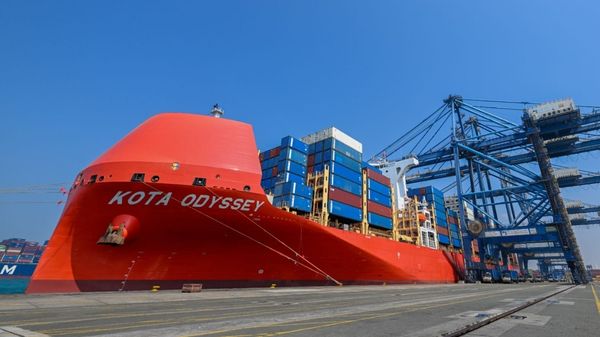Sharjah-headquartered port management and logistics company,
Gulftainer Company Ltd., has announced that it has acquired a 51% stake in Saudi Arabia's
Gulf Stevedoring Contracting Company (GSCCO), thus allowing it to assume the full management of three Saudi terminals, located in
Jeddah and
Jubail.
The acquisition makes Gulftainer the largest port operator in the Middle East with regard to the number of terminals operated in the region. The company now manages 40% of all the major container terminal facilities in the Middle East that have the capacity to handle ships of 12,000 TEU or greater in size, and 45% of all major port capacity outside of the Strait of Hormuz.
Gulftainer will operate the
Northern Container Terminal (NCT) on the west coast of Saudi Arabia,
Jubail Commercial Port (JCP) [pictured] and
Jubail Industrial Port (JIP) on the east coast.
Both Jeddah and Jubail are key growth areas in the country with strong, positive economic forecasts, following massive government investments in infrastructure. Jubail in particular is seen as critical to economic development within the Kingdom, and the government has recently invested SAR 800 million (USD 215 million) in its two facilities to increase its capacity and cope with the growing flow of cargo.
In recent years, the government has also confirmed investments in excess of SAR480 billion (USD 129 billion) in energy and infrastructure projects in the surrounding region, which in turn is expected to lead to an increase in terminal activity.
HRH Prince Abdulaziz Bin Ahmed Bin Abdulaziz Al Saud, Chairman of Gulf Stevedoring Company, remarked: "We are delighted to be partnering with Gulftainer and look forward to continuing to strengthen the relationship in the coming years. The Saudi economy is one of the strongest economies in the world thanks to the leadership of the Custodian of the Two Holy Mosques, King Abdullah Bin Abdulaziz and his Crown Prince. These three ports will be expanding significantly and the expertise that Gulftainer brings with it to Gulf Stevedoring and Contracting Company will be invaluable."
Commenting on the acquisition,
Badr Jafar, CEO of
Crescent Enterprises and Vice-Chairman of the Gulftainer Group, said: "We are very proud of our Sharjah and UAE heritage and home-grown expertise. Saudi Arabia’s growth makes it an extremely fast-paced, exciting market and I am confident that Gulftainer’s proven track record in this sector will further serve and support the evolution and development of the port and logistics sector in the Kingdom in the coming years. We are honoured to partner with Gulf Stevedoring, and together we can offer a uniquely private-sector and genuinely objective approach towards port management and logistics in the Country."
Peter Richards, Group Managing Director, Gulftainer said: "This is an exciting time for Gulftainer as we increase our footprint across the Middle East. The industry here is growing at a rapid pace and with this acquisition we have laid a strong foundation for the company’s future not just regionally but on a global level. The road ahead is one that we look to with optimism and ensure that we are well prepared to stay ahead of the trends and deliver exceptional results for our clients."
Gulftainer was established in Sharjah, UAE, in 1976, and is a subsidiary of Crescent Enterprises - a UAE-based conglomerate operating globally across multiple sectors including Power and Engineering, Aviation, Healthcare, and Private Equity. Gulftainer launched the first dedicated container terminal in
Port Khaled, Sharjah.
Gulftainer has grown significantly, regionally and internationally, and now has established ports and logistics operations across the UAE, Iraq, Russia, Lebanon and Brazil, as well as joint ventures in Turkey and Pakistan. It also operates international freight forwarding and project logistics.
Jeddah's NCT has recently undergone significant expansion, which will substantially improve the capability of Jeddah Islamic Port. The facility currently consists of 1,654m of quay, 11 cranes, seven of which are super post panamax cranes, with an annual capacity of three million TEUs. Almost 75% of all container traffic to the Kingdom is currently handled through the Port of Jeddah, and it is a major trade gateway for container traffic.
Located on the Arabian Gulf, Jubail is home to the development of the largest industrial zone in the world covering 8,000 hectares, comprising petrochemical plants, fertilizer plants, steel works, and an industrial port as well as the world’s largest desalination plant. Jubail Port is one of the largest industrial ports in the world and currently handles 52 million tonnes of cargo per annum, a figure which is expected to grow substantially in the short to medium-term.
JCP is equipped with a 1,282m quay, five cranes and has a container handling capacity of 1 million TEU per annum. It is expected that this figure will continue to increase quickly, particularly with the opening of major petrochemical developments in the Jubail Industrial Zone and the planned rail link to
Riyadh. GSCCO currently operates 22 commercial berths at the port, including the open sea tanker terminal.
Image: Jubail Commercial Port (JCP).

